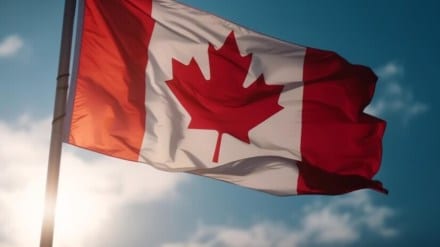By Vaibhav Gupta
The recent diplomatic discord between Canada and India has cast a pall of uncertainty over the educational dreams of numerous Indian students, particularly those hailing from Punjab, who have submitted their applications for student visas to pursue their studies in Canada. This political upheaval, sparked by mutual allegations of human rights abuses and meddling in internal affairs, has led to a slowdown in the processing of visa applications and an increase in rejections. This has left many students in a state of uncertainty and confusion.
With diplomatic tensions showing no signs of resolve, the students are left grappling with anxiety about potentially missing crucial deadlines, losing out on their admission offers, and the possibility of their time and financial investments going to waste. This situation is particularly distressing for those who have been meticulously planning their academic journey, only to find themselves caught in the crossfire of international politics.
The rising tension has also stirred a wave of apprehension among numerous Indian students who have either applied for or are currently pursuing their education in Canada. They fear that Canada may resort to punitive actions such as visa cancellations, imposition of travel restrictions, or cutbacks in scholarships. Additionally, concerns about their personal safety and well-being while in Canada have been heightened. They worry about potential discrimination or adverse treatment from certain sections of society due to the ongoing diplomatic conflict.
In the wake of the changing academic landscape in Canada, a significant number of students are actively seeking clarity and guidance. Interestingly, several Indian higher education platforms have taken note of this predicament and are steering these students towards exploring other countries such as the UK and the US as potential alternatives for their overseas education.
However, this shift in direction is not without its own set of challenges. For instance, students who are already halfway through their application process for Canadian institutions find themselves in a particularly distressing situation. They are caught in a limbo, unsure of whether to continue with their existing applications or start anew for a different country.
If the diplomatic tensions between India and Canada continue to escalate, it could have far-reaching implications. The impact could be particularly significant for businesses that primarily cater to students aspiring to study in Canada. These businesses might have to rethink their strategies and offerings to adapt to the changing dynamics.
While the present scenario is riddled with uncertainty, the future does not seem to offer much relief either. There is growing apprehension regarding potential delays in the processing of student visas. Echoing these concerns, some Canadian universities have advised students to contemplate deferring their enrolments to the next academic cycle. Canadian universities typically have a tri-annual admission cycle, with intakes commencing in January, May, and September. However, given the current circumstances, students might have to adjust their plans and timelines accordingly.
Indians, particularly those from Punjab and Gujarat, have a long history of migration to Canada. The allure of Canada for Punjabi students is rooted in various factors, ranging from the stringent immigration policies of the United States to the cost-effectiveness of Canadian education compared to nations like the US, UK, and Australia. Furthermore, linguistic, and cultural affinities have further solidified Canada’s desirability among Indian students.
A study conducted by the National Foundation for American Policy (NFAP) has highlighted a remarkable surge in Indian immigration to Canada. Over the decade spanning from 2013 to 2022, there was a staggering 260% increase in Indian permanent residents in Canada, soaring from 32,828 to an impressive 118,095. Moreover, Indian students constitute a substantial portion of the international student community in Canada, making up a robust 47%.
Nonetheless, should students consider alternative destinations such as the United Kingdom, the United States, or Australia, they must brace themselves for higher academic expenditures. Recently, the United Kingdom has increased its student visa fees to GBP 490, marking a GBP 115 rise for visitors. Meanwhile, Australia has heightened its financial requirements for international students. Starting on October 1, 2023, foreign students must demonstrate savings amounting to AU$24,505 (approximately Rs 20.40 lakhs) as evidence of their ability to cover annual living expenses.
As the political dynamics between Canada and India continue to evolve, the dreams and aspirations of countless students hang in the balance. The path forward remains fraught with uncertainties and challenges, calling for a thoughtful reassessment of options by those who aspire to be global learners. Nonetheless, the students are holding onto hope, waiting for a positive resolution that will allow them to embark on their planned academic journey. They remain hopeful that the diplomatic tensions will ease soon, allowing them to pursue their dreams of studying in Canada without further hindrance.
The author is co-founder and chief marketing officer of iSchoolConnect Inc. Views are personal.
